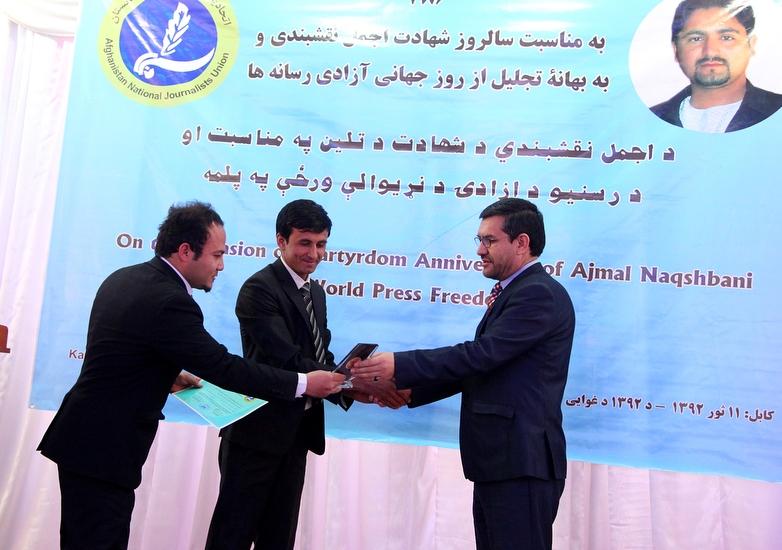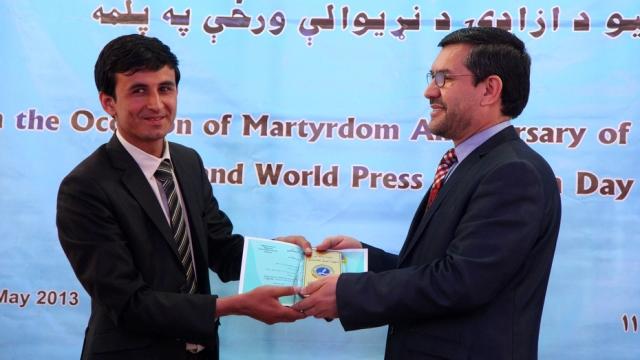KABUL - Ahead of the World Press Freedom Day that falls on 3 May, an Afghan journalists union honoured two journalists yesterday with this year’s Ajmal Naqshbandi Media Award, named after a journalist killed in 2007 by the Taliban in southern Helmand province.
Ali Akbar Rostami, a reporter with the Hasht-e-Shubh daily, and Sayed Jan Sabawoon, a freelance photojournalist and documentary maker, are the first recipients of the Award, which was established this year by the Afghan National Journalists Union (ANJU) and recognizes the bravery of journalists.
The killing of Mr. Naqshbandi in April 2007 drew widespread condemnation including from the special United Nations envoy in Afghanistan of that time, Tom Koenigs, who condemned the “senseless murder unreservedly.”
Mr. Rostami was given the Award for writing “a number of investigative reports”, which is significant in the budding Afghan media industry, while the Award recognized the another recipient, Mr. Sabawoon, for “making significant efforts” in going to difficult places despite being harassed and abused to take photos and shoot videos.
According to Seddiqullah Tauhidi, the head of a leading Afghan media rights group called ‘NAI – Supporting Open Media in Afghanistan,’ 34 journalists including 12 foreigners have been killed in the country since 2001. Many cases are yet to be resolved despite calls from national and international rights groups, he said.
Accepting the award at a ceremony in the capital, Kabul, Mr. Rostami said, “Investigative journalism and developing investigative reports can have positive impacts in third or developing countries.”
He encouraged Afghan media stakeholders to establish a centre for preparing and publishing “whistle-blowing and investigative reports” so that investigative reporters can get together and provide opportunity for trainings on investigative reporting.
Mr. Sabawoon said that during his professional career, he was frequently harassed and beaten by “different individuals” and the government forces. However, Mr. Sabawoon expressed his happiness to see his work appreciated and believed that his efforts were worth undertaking.
Handing over the award, Afghanistan’s Deputy Minister of Information and Culture, Din Mohammad Mobariz Rashidi, called for preserving the achievements made in the media sector in the last 11 years.
“Freedom of speech, indeed, is the basis of all human rights liberty which can lead a nation to development and advancement,” said Mr. Rashidi, adding that neither the government nor media organizations should give up their support to protection of media and freedom of speech.
“Afghanistan suffered due to lack of liberty and with freedom, the country will stand on her own feet,” said Mr. Rashidi.






